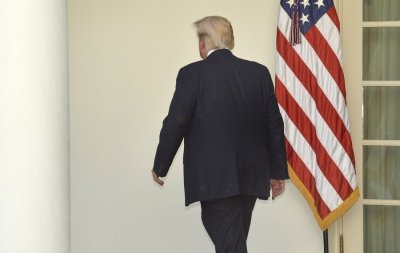
Washington, Aug 7 (IANS) US President Donald Trump’s policy towards India, particularly the imposition of a 50 per cent tariff on Indian goods in response to New Delhi’s ongoing imports of Russian crude oil while showing leniency to China, has strained the bilateral relationship that was carefully cultivated over past two decades through bipartisan effort, a report cited on Thursday.
With Russian oil contributing to nearly one-third of India’s imports, the India Narrative report stated that New Delhi has made it clear that it won’t let the energy needs of 1.4 billion people be dictated by Washington’s “coercive diplomacy”.
The Ministry of External Affairs (MEA) minced no words, calling out US duplicity and exposing the West’s continued trade with Russia. India’s message was clear: it will chart its own path, not as a subordinate ally but as an autonomous power. Trump’s aggressive tariff strategy, now his go-to playbook for forcing negotiations, has met a red line, the report mentioned.
“The US, having quietly accepted China’s continued energy dealings with Russia, has decided to single out India for punitive action. This selective outrage has not gone unnoticed in the South Block,” it stated.
For years, the US described India as a “strategic partner”, and many believed that the shared economic growth and India’s vital role in the Indo-Pacific region would shield it from the hardline approach that Trump adopted with other countries.
However, the report mentioned, the illusion finally shattered when Trump slapped a cumulative 50 per cent tariff on Indian goods and threatened secondary sanctions on India’s energy sector, pressuring New Delhi to stop buying Russian crude oil, while the US and European Union engaged in trade relations with Moscow.
Moreover Washington’s public overtures towards Islamabad, offering preferential tariff rates of 19 per cent, joint oil exploration agreements signed merely weeks after India highlighted Pakistan’s role in the April 22 Pahalgam terrorist attack and additionally Trump’s threat to US companies manufacturing in India with penalties unless they “brought jobs back home”, dealt a heavy blow to the India-US relations.
The report stated that this is not how a nation committed to preserving a “strategic partnership” behaves but reflects the mindset of a “populist power broker” who views alliances not as long-term investments, but as negotiating chips in a perpetual game of leverage.
“The US-India relationship was once seen as a linchpin of the 21st-century global order. But in an age where populist transactionalism masquerades as foreign policy, even linchpins are expendable. The world is beginning to understand that with Trump, no relationship is special: only situational. And when alliances are treated as disposable, the global order itself becomes dangerously brittle,” the report noted.
–IANS
scor/as
